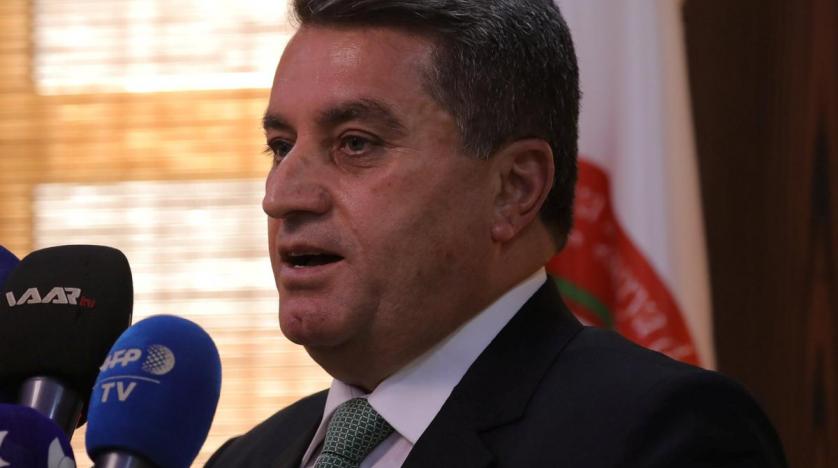Two US women with ISIS ties and six children were repatriated from northeast Syria, Kurdish-led authorities told Reuters on Wednesday, saying their return came at the request of the US government.
The eight Americans are among thousands of wives and children of foreign militants detained by US-backed forces who defeated the last ISIS foothold in eastern Syria in March. The Kurdish-led forces are holding the women and children in already overflowing camps, on top of hundreds of foreign militants in prisons.
Kurdish leaders say they cannot hold the foreigners forever and warn that the prisoners pose a threat in northeast Syria.
Abdulkarim Omar, co-chair of foreign relations in the Kurdish-led region, said foreign governments now appeared more willing to repatriate citizens but “only humanitarian causes”. He told Reuters he expected more foreign women and children to be sent home from Syria in the near future.
Omar said the eight Americans were due to arrive in the United States on Wednesday. He said they were returned at the request of the US government and based on their own desire to return “without any pressure or coercion.”
The Kurdish-led administration, which controls swathes of north and east Syria, said it had helped repatriate them based on their “free and voluntary desire to return to their country.”
Omar didn’t identify the women and children involved, and there was no immediate confirmation or comment from US officials. It was not clear when they left Syria, who they were handed over to, or where in the US they will be taken. It is the second such repatriation of US nationals from Syria. Earlier this year, a woman and four children were returned to the US.
Since the ISIS group’s territorial defeat in Syria and Iraq, the issue of which authorities should prosecute ISIS foreign fighters and what to do with the families they left behind has become a priority. Thousands of ISIS members and their families are in camps and detention centers in northern Syria, including around 74,000 people who are being sheltered at al-Hol camp in Hasakeh province.
Thousands of others are caught in Iraq’s judicial system, awaiting trial.
Many Western nations have refused to repatriate their nationals, citing security concerns. Others, however, have been taking back their nationals on a case by case basis.
Responsibility for the information and views set out in this article lies entirely with the author.


